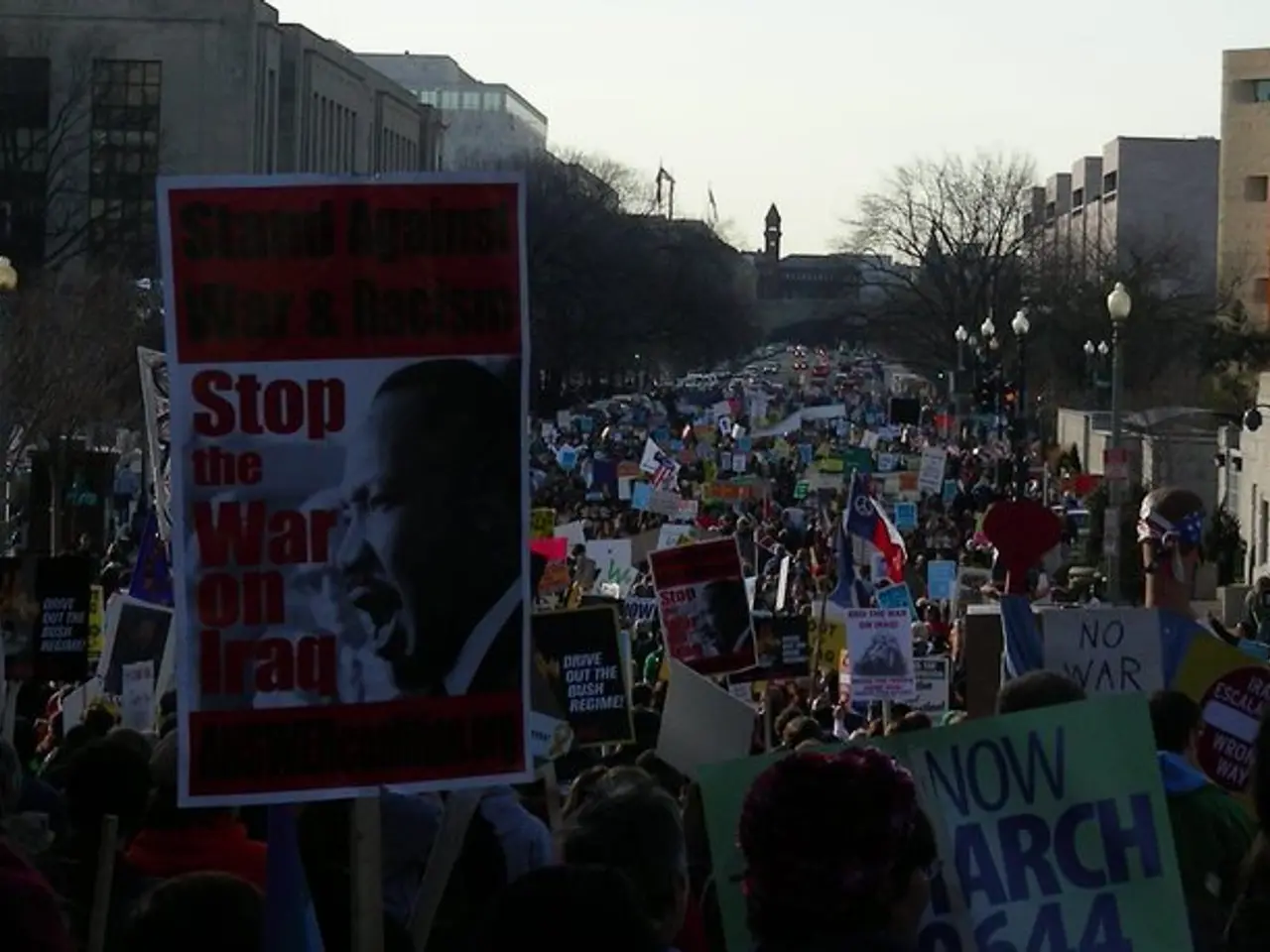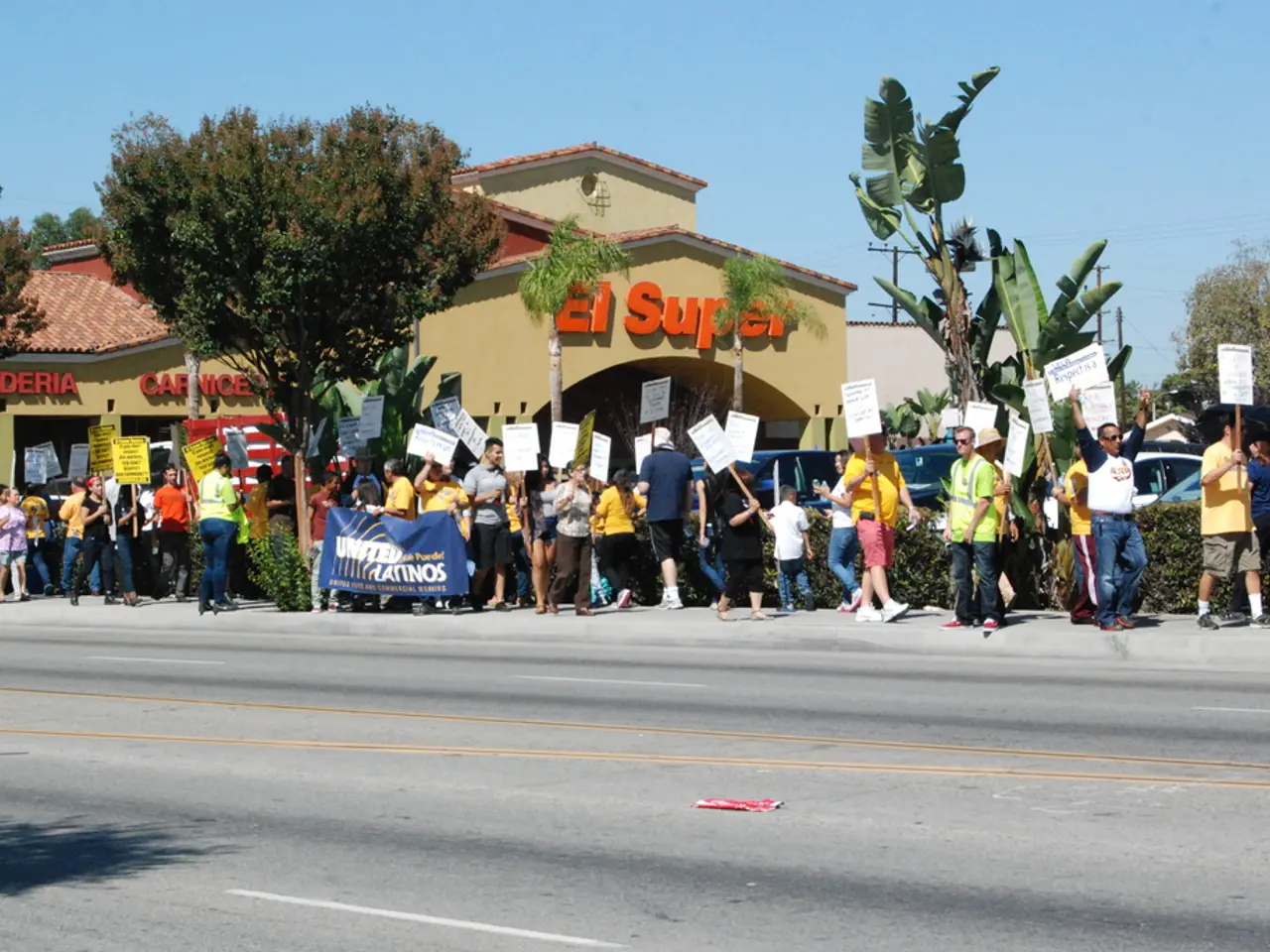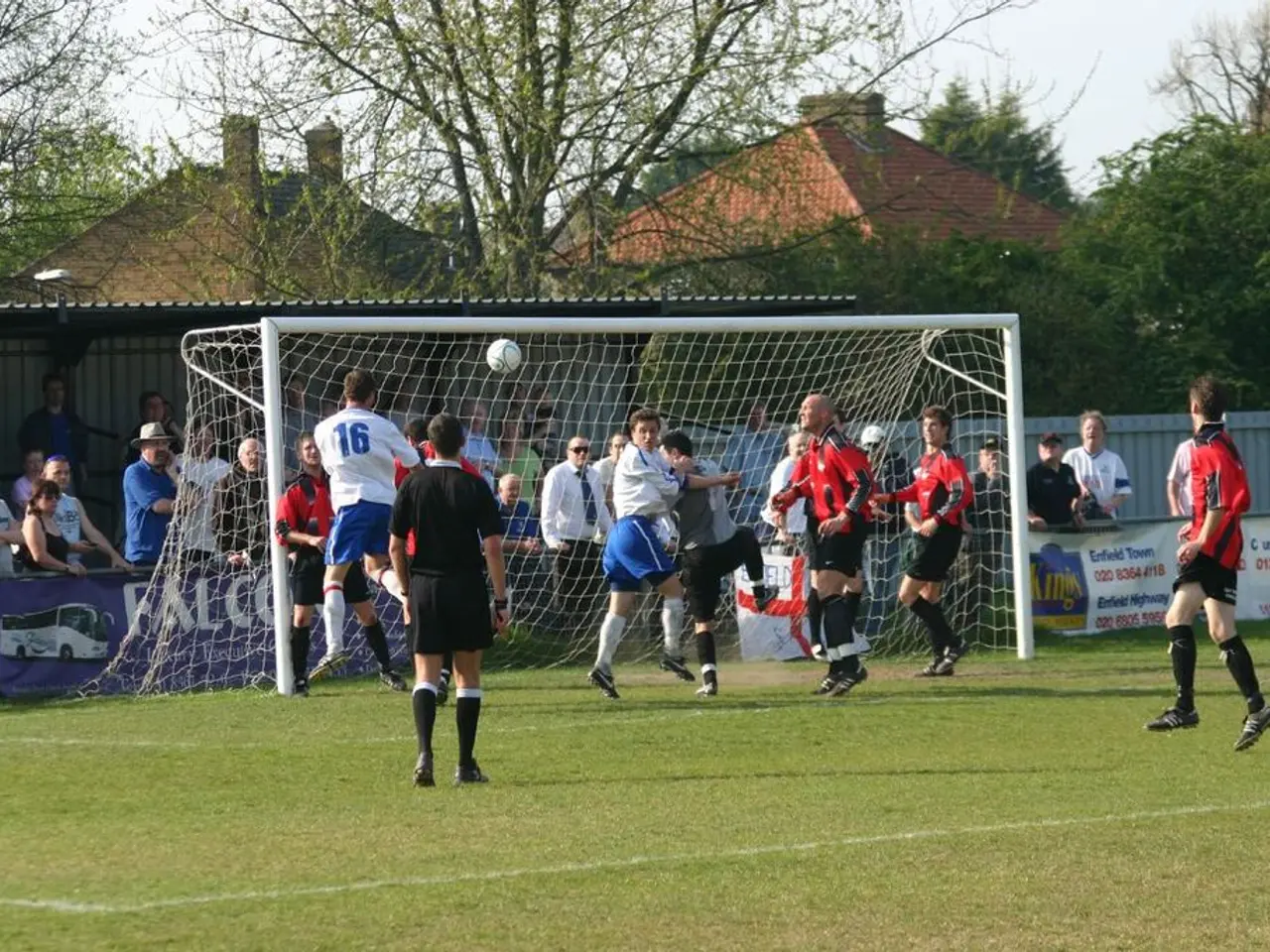Police leader condemns mistreatment of democratic freedoms by critics of Israel
In a shocking turn of events, a demonstration under the motto "Internationalist Queer Pride" in Kreuzberg, Berlin, turned violent on Saturday. Police officers were subjected to a hail of stones, paint bombs, bottles, and physical assaults, including being punched, kicked, and stabbed with flagpoles.
The violence reached a chilling level when a policewoman was hit in the neck, with the unknown perpetrator deliberately aiming for the spot below her helmet. Another police officer was injured on Kottbusser Street, the exact nature of the injury is still unclear. In total, 17 officers were injured during the renewed acts of violence, and 16 of them suffered bruises and contusions.
The incident has left 57 individuals in police custody. The demonstration, which saw the death of Israeli soldiers being celebrated, was marred by the presence of approximately 800 violence-prone Israel-haters who sought a confrontation with the police.
Berlin's police chief, Barbara Slowik, has condemned the events, stating that they are no longer compatible with the constitutionally protected right to assembly. She is calling for consequences following the renewed acts of violence by so-called pro-Palestinian protesters.
Christopher Förster, a CDU MP, echoes Slowik's sentiments, believing a tightening of the assembly law is necessary to better counter violent demonstrators and protect public order. The head of the police union in Berlin has questioned whether one of his colleagues must die before action is taken to prevent such acts of violence.
The current laws in Berlin regarding violence at demonstrations are framed within Germany’s general Assembly Law ("Versammlungsgesetz") and criminal codes that prohibit violence against police officers and others during protests. Police are authorized to intervene, disperse, and arrest participants when violence or threats to public order occur.
Recent events have seen harsh police responses to demonstrations, especially those supporting Palestine, with numerous arrests and accusations of police officers being seriously injured by protesters. The Berlin government and police have increased monitoring and prosecutions related to protest violence and hate crimes.
While no explicit new legislative text proposals are cited, the climate points toward potential legal amendments or stricter application in assembly law to better control violent demonstrators. The operation has highlighted the strains officers have faced for almost two years, particularly through the direct intervention in antisemitic chants.
[1] Assembly Law in Germany [2] Recent Legislative Discussions in Berlin [3] Increased Violence at Protests in Germany
- In light of the escalating violence at protests in Germany, particularly those related to the Israel-Palestine conflict, there have been ongoing discussions about tightening the Assembly Law to better manage violent demonstrators, as echoed by Christopher Förster, a CDU MP.
- The current Assembly Law in Germany is being reconsidered, with recent events suggesting a potential shift towards stricter application or legislative amendments, aiming to control disturbances such as the one witnessed in Kreuzberg, Berlin, during the "Internationalist Queer Pride" demonstration.








